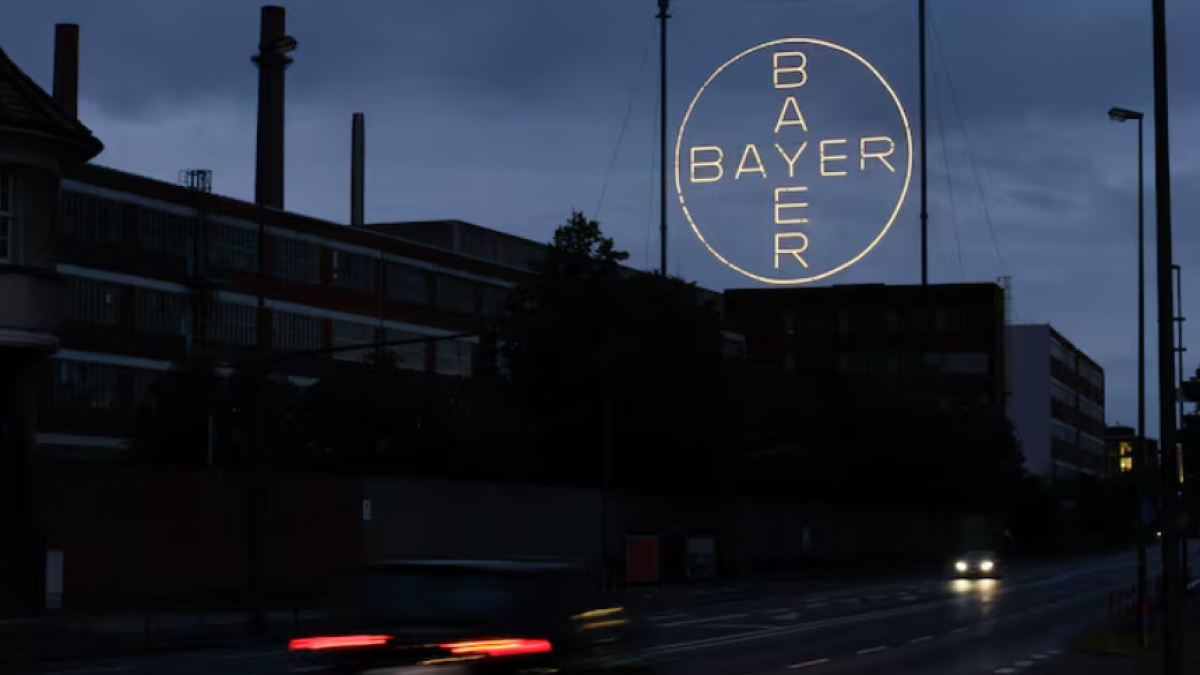Kremlin says Ukraine's Zelenskyy 'welcome in Moscow, with safety guaranteed'
The Kremlin has reiterated that Volodymyr Zelenskyy is welcome in Moscow for talks with Vladimir Putin, stressing that any meeting must be fully prepa...

A U.S. court has reinstated a $185 million verdict against Bayer’s Monsanto unit over chemical contamination at a Washington state school, reviving a major case involving toxic substances.
The Washington State Supreme Court on Thursday overturned a lower court’s decision that had previously thrown out the 2021 verdict in favour of three teachers from Sky Valley Education Center in Monroe. The teachers claimed they fell ill after exposure to polychlorinated biphenyls (PCBs) — industrial chemicals produced by Monsanto and now banned for their health risks.
Monsanto, acquired by Bayer in 2018, has faced numerous lawsuits from teachers, parents, and students at the Seattle-area school who allege that PCB leaks from old light fixtures caused cancer and other illnesses. More than 200 plaintiffs have filed similar claims, with earlier jury awards exceeding $1.5 billion, though several were later reduced or overturned.
In August, Bayer said it had settled all pending PCB cases except nine, which remain under appeal — including the one addressed in Thursday’s ruling.
Attorneys for the teachers, Rick Friedman and Deepak Gupta, hailed the decision as a victory for accountability:
“This ruling sends a clear message: companies that conceal the risks of toxic chemicals must be held accountable.”
Monsanto, however, criticised the outcome, saying the court’s decision was “incorrect” and that the company was considering its legal options.
The reinstated verdict could influence the outcome of other paused appeals linked to the case.
The dispute centres on PCBs — chemicals once used in electrical equipment, paint, caulking, and floor finishes — which the U.S. government banned in 1979 due to their link to cancer and other health problems. Monsanto manufactured PCBs from 1935 to 1977, and plaintiffs claim the company knew about the dangers for decades but hid the information from regulators and the public.
Bayer argues that the plaintiffs have not proven their illnesses were caused by PCBs, noting that levels detected in the school were within limits deemed safe by the Environmental Protection Agency (EPA). The company has also said the school ignored official warnings to replace ageing light fixtures.
The latest Supreme Court decision determined that Missouri law, not Washington state law, should apply — since Monsanto’s decisions regarding PCB production were made at its Missouri headquarters. That ruling reinstates the 2021 verdict and could shape how remaining cases are decided.
The death toll from nationwide protests in Iran has climbed to 6,126, according to the U.S.-based Human Rights Activists News Agency (HRANA).
NATO Secretary General Mark Rutte said on Monday that Europe is "incapable" of defending itself alone without the United States, dismissing calls for a separate European defence force and stressing that transatlantic cooperation remains essential for the continent’s security.
France’s National Assembly has approved a bill banning access to social media for children under 15, a move backed by President Emmanuel Macron and the government as part of efforts to protect teenagers’ mental and physical health.
Israel has recovered the remains of the last remaining hostage held in Gaza, the military said on Monday, fulfilling a key condition of the initial phase of U.S. President Donald Trump's plan to end the war in the Palestinian territory.
Ongoing attacks on Ukrainian cities “undermine the credibility of the recent trilateral talks.” That’s political analyst Orkhan Nabiyev's assessment of the peace talks in Abu Dhabi on 23-24 January, attended by representatives of Ukraine, Russia, and the United States.
The Kremlin has reiterated that Volodymyr Zelenskyy is welcome in Moscow for talks with Vladimir Putin, stressing that any meeting must be fully prepared and aimed at achieving concrete results.
“This is a strategic wake-up call for all of Europe” French President Emmanuel Macron warned on Wednesday, 28 January, as he hosted Danish Prime Minister Mette Frederiksen and Greenland’s premier, Jens-Frederik Nielsen, in Paris to reaffirm France’s support for Greenland’s sovereignty.
“The next attack will be far worse! Don’t make that happen again,” U.S. President Donald Trump wrote on Wednesday (28 January), urging Iran to negotiate a nuclear deal.
Keir Starmer is on the first visit to China by a UK prime minister since 2018. He is seeking to strengthen political and business ties with Beijing as relations between Western countries and the United States become more volatile.
Brussels and Hanoi are set to sign a historic diplomatic upgrade. The partnership focuses on de-risking supply chains, tapping critical minerals, and expanding semiconductor capacity.
You can download the AnewZ application from Play Store and the App Store.

What is your opinion on this topic?
Leave the first comment